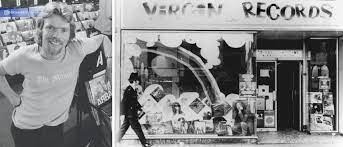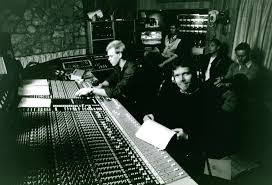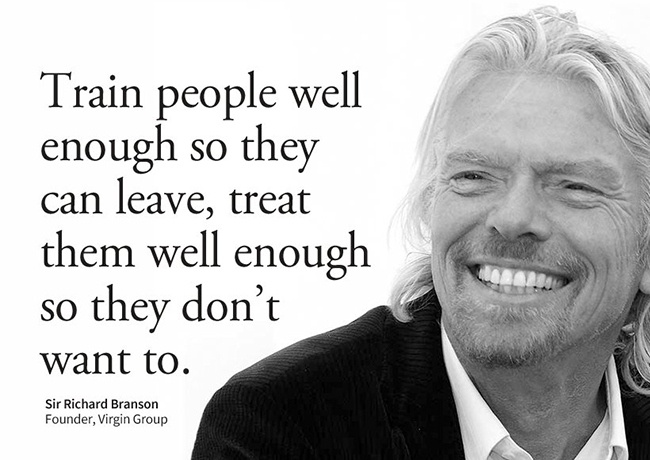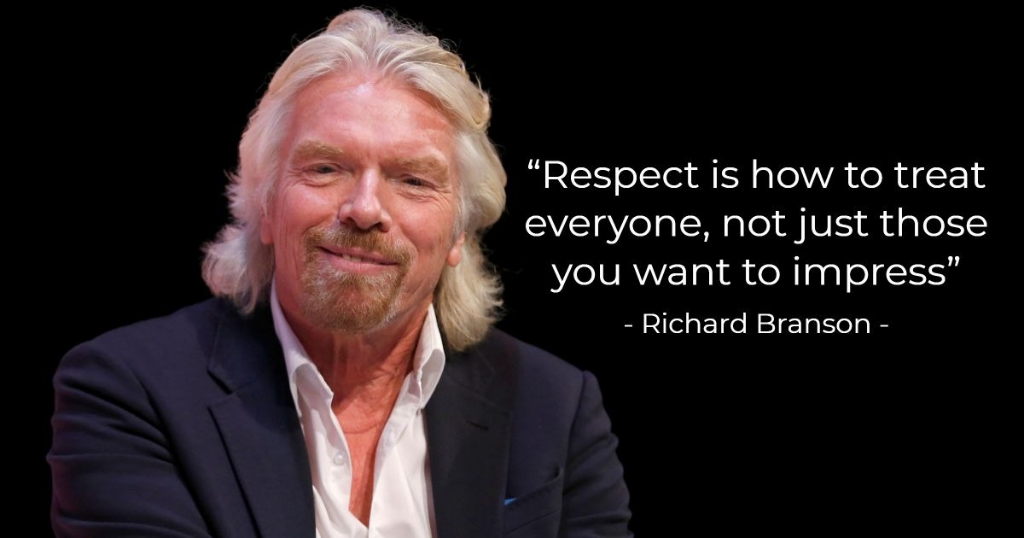Table of Contents
- Introduction
- Early Life and Education
- Virgin Records: The Legendary UK record label
- Leadership Style
- Key Achievements and Milestones
- Lessons from Richard Branson
- Conclusion
Introduction
Richard Branson, a globally recognized entrepreneur and leader, has made a significant impact in the business world for several decades. His entrepreneurial journey is filled with inspiring stories of risk-taking, innovative thinking, and a relentless commitment to pushing the boundaries of what’s possible.
Branson’s success as a business leader is a testament to his creativity, resilience, and determination to challenge the status quo. Throughout his career, he has founded and led numerous successful ventures across various industries, demonstrating his exceptional business acumen and leadership skills.
Early Life and Education

Richard Branson was born on July 18, 1950, in Blackheath, London, England. His full name is Sir Richard Charles Nicholas Branson. He grew up in a middle-class family and showed early signs of entrepreneurial spirit.
Branson struggled with dyslexia during his school years, which affected his academic performance. Despite facing challenges in traditional educational settings, his innate curiosity and creativity were evident from a young age.

His first business endeavor, the Student magazine, was a success and marked the beginning of his journey as an entrepreneur. Branson’s decision to leave formal education and venture into business early in life played a crucial role in shaping his unconventional and innovative approach to business and leadership. His experiences outside the classroom became foundational to his future successes in building the Virgin Group and establishing himself as a prominent figure in the business world.
Virgin Records: The Legendary UK record label

In 1972, at the age of 22, Richard Branson founded Virgin Records, a venture that would ultimately redefine the music industry and contribute significantly to his entrepreneurial legacy.
The establishment of Virgin Records was an outgrowth of Branson’s interest in the music industry and his desire to challenge the status quo. Branson initially started the Virgin mail-order record business, operating from the crypt of a church. The endeavor allowed him to sidestep traditional retail channels and sell records at discounted prices.
The breakthrough moment for Virgin Records came in 1973 with the signing of Mike Oldfield and the release of the album “Tubular Bells.” The album’s unexpected success propelled Virgin Records into the mainstream and provided the financial foundation for future endeavors.

The label gained a reputation for its willingness to take risks and support unconventional talent. Despite the successes, there were financial challenges, including a legal battle with rival label EMI. However, Branson’s resilience and innovative strategies, such as introducing the Virgin Megastores retail chain, helped Virgin Records thrive in a competitive industry.
The sale of Virgin Records to EMI in 1992 marked a major financial success for Branson, providing him with resources to expand the Virgin brand into various industries. The founding and subsequent success of Virgin Records showcased Branson’s ability to disrupt established markets and set the stage for his multifaceted entrepreneurial career.
Leadership Style

His approach is characterized by a combination of visionary thinking, approachability, and a focus on employee well-being. Here are key aspects of Richard Branson’s leadership style:
- Charismatic and Approachable: Branson is known for his charismatic and approachable demeanor. He actively engages with employees at all levels and maintains an open-door policy. His friendly and accessible approach creates a positive and inclusive work environment.
- Risk-Taker and Innovator: Branson is a risk-taker who is not afraid to challenge the status quo. His willingness to take bold risks and venture into new and uncharted territories has been a hallmark of his leadership.
- Empowerment and Delegation: Branson believes in empowering his team members and encourages a culture of delegation. He entrusts his employees with responsibilities, fostering a sense of ownership and accountability.
- Visionary Leadership: Branson is a visionary leader with a long-term perspective. His ability to foresee trends and opportunities has contributed to the success and diversification of the Virgin brand.
- Customer-Centric Approach: Branson’s leadership is centered around a deep understanding of customer needs. He prioritizes customer satisfaction and has built a customer-centric brand, focusing on delivering value and quality in various industries.
- Adaptability and Resilience: Branson’s leadership style is marked by adaptability and resilience. In the face of challenges, he remains flexible and resilient, adapting strategies to navigate through uncertainties and setbacks.
Overall, Richard Branson’s leadership style is a blend of innovation, accessibility, and a commitment to both employees and customers. His ability to inspire and motivate teams has played a crucial role in the sustained success and global impact of the Virgin Group
Key Achievements and Milestones

- Virgin Records and Tubular Bells (1973): Founded Virgin Records in 1972, challenging the traditional music industry.
The signing of Mike Oldfield and the success of the album “Tubular Bells” in 1973 marked a significant breakthrough for Virgin Records. - Virgin Atlantic Airways (1984):
Launched Virgin Atlantic Airways in 1984, disrupting the airline industry with innovative services and customer-focused experiences. - Transatlantic Balloon Crossing (1987):
Successfully crossed the Atlantic Ocean in a hot air balloon in 1987, achieving a world record with the “Virgin Atlantic Flyer.” - Virgin Galactic (2004):
Founded Virgin Galactic in 2004, aiming to make commercial space travel a reality. The company achieved its first crewed spaceflight in 2018. - Virgin Mobile (1999):
Introduced Virgin Mobile in 1999, pioneering the concept of a virtual mobile network operator and reshaping the telecommunications industry. - Virgin Trains (1997):
Entered the railway sector with the launch of Virgin Trains in 1997, providing high-speed and customer-focused rail services in the UK. - Necker Island Retreat (1978):
Acquired Necker Island in 1978, establishing it as a private retreat and showcasing Branson’s success and lifestyle. - Global Expansion of the Virgin Brand:
Expanded the Virgin brand into various industries, including Virgin Megastores, Virgin Mobile, Virgin Galactic, Virgin Hotels, and more. - Kite-surfing Across the Channel (2012):
He successfully kite-surfed across the English Channel in 2012, showcasing his adventurous spirit and commitment to personal challenges. - Philanthropic Initiatives:
Engaged in various philanthropic efforts, including the founding of Virgin Unite, focusing on social and environmental issues.
Lessons from Richard Branson

Embrace Risk and Innovation: Branson encourages entrepreneurs to embrace risk and pursue innovative ideas. His success is rooted in his willingness to take bold steps and explore uncharted territories.
Prioritize People: People-centric leadership is a key lesson from Branson. Building strong relationships with employees, customers, and partners contributes to long-term success.
Challenge the Status Quo: Branson’s career is marked by challenging established norms. Entrepreneurs can learn to question the status quo and seek unconventional solutions.
Cultivate a Positive Company Culture: Fostering a positive and inclusive company culture is essential. Branson emphasizes the importance of creating a workplace where employees feel valued, motivated, and happy.
Customer Focus is Paramount: Understanding and catering to customer needs is crucial. Branson’s businesses are known for their customer-centric approach, delivering value and exceptional experiences.
Delegate and Empower: Delegation and empowerment lead to a more effective and dynamic organization. Branson believes in trusting his team and empowering them to take ownership of their responsibilities
Stay Resilient in the Face of Challenges: Resilience is a recurring theme in Branson’s career. Entrepreneurs can learn to navigate challenges with resilience, adaptability, and a positive mindset.
Think Long-Term: Branson’s visionary leadership involves thinking long-term. Entrepreneurs should focus on building sustainable businesses with a lasting impact rather than seeking quick wins.
Balance Work and Play: Branson advocates for a balance between work and play. While serious about business, he emphasizes the importance of enjoying the journey and maintaining a healthy work-life balance.
Give Back and Make a Difference: Branson’s commitment to philanthropy demonstrates the importance of giving back. Entrepreneurs can learn to use their success to make a positive impact on society and the environment.
Conclusion
In conclusion, Richard Branson’s remarkable career as an entrepreneur and leader exemplifies a relentless pursuit of innovation, risk-taking, and a commitment to pushing the boundaries of conventional business.
From the inception of the Virgin Group to his ventures in various industries, Branson’s charismatic leadership style and ability to turn challenges into opportunities have solidified his status as a global business icon.
His unwavering belief in the power of creativity and the importance of putting people first serve as enduring lessons for aspiring entrepreneurs, cementing Branson’s legacy as a trailblazer who transformed industries and inspired generations.

Faisal Rafeeq is an SEO, PPC, and Digital Marketing expert. Faisal has worked on multiple e-commerce and web development projects, creating tailored and result oriented solutions. Some of the recent projects include ERPCorp, Wheelrack , TN Nursery, PROSGlobalinc, Patient9, and many more



